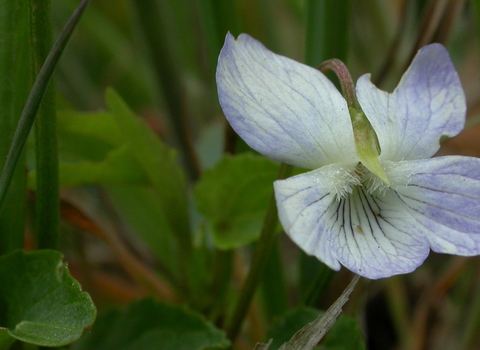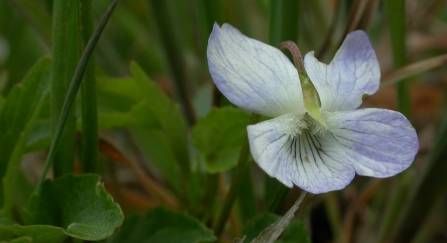
Philip Precey
Fen violet
A pale member of the violet family sometimes known as ‘milk violet’, the fen violet has a delicate and unassuming appearance. A real specialist of the wetland habitat, this species has seen a massive decline in population due to habitat loss and draining of wetland habitats.
Scientific name
Viola persicifoliaWhen to see
Flowers May-JuneSpecies information
Category
Statistics
Height: 10 – 30cmClassified as Endangered on the Vascular Plant Red Data List for Great Britain.
Protected in the UK under the Wildlife and Countryside Act, 1981.
Protected in the UK under the Wildlife and Countryside Act, 1981.
About
The fen violet has been studied over the last 50 years by a number of organisations working together to determine the needs of this rather fussy perennial. The conditions of those growing in England is markedly different from those in Northern Ireland which gives a range of environmental conditions to monitor. The seed is known to be long lived and the plant has an ability to produce seed through self-pollination which boosts seed numbers in years where conditions are unfavourable. It is hoped that continued research will see the strengthening of current populations in the UK.How to identify
The fen violet is a member of the violet family with a very pale flower, and deep green leaves. It has been reported to hybridise with other violet species but research is ongoing to the extent of this.Distribution
The fen violet has been recorded at around 20 sites in England in the past but in recent years only at Woodwalton Fen, Wicken Fen in Cambridgeshire and Otmoor in Oxfordshire. Its stronghold is in Northern Ireland but it is still restricted and threatened.Did you know?
The seeds of this species seem to be very resilient and large emergences commonly follow a level of disturbance such as scrub clearance or peat cutting.
Philip Precey
